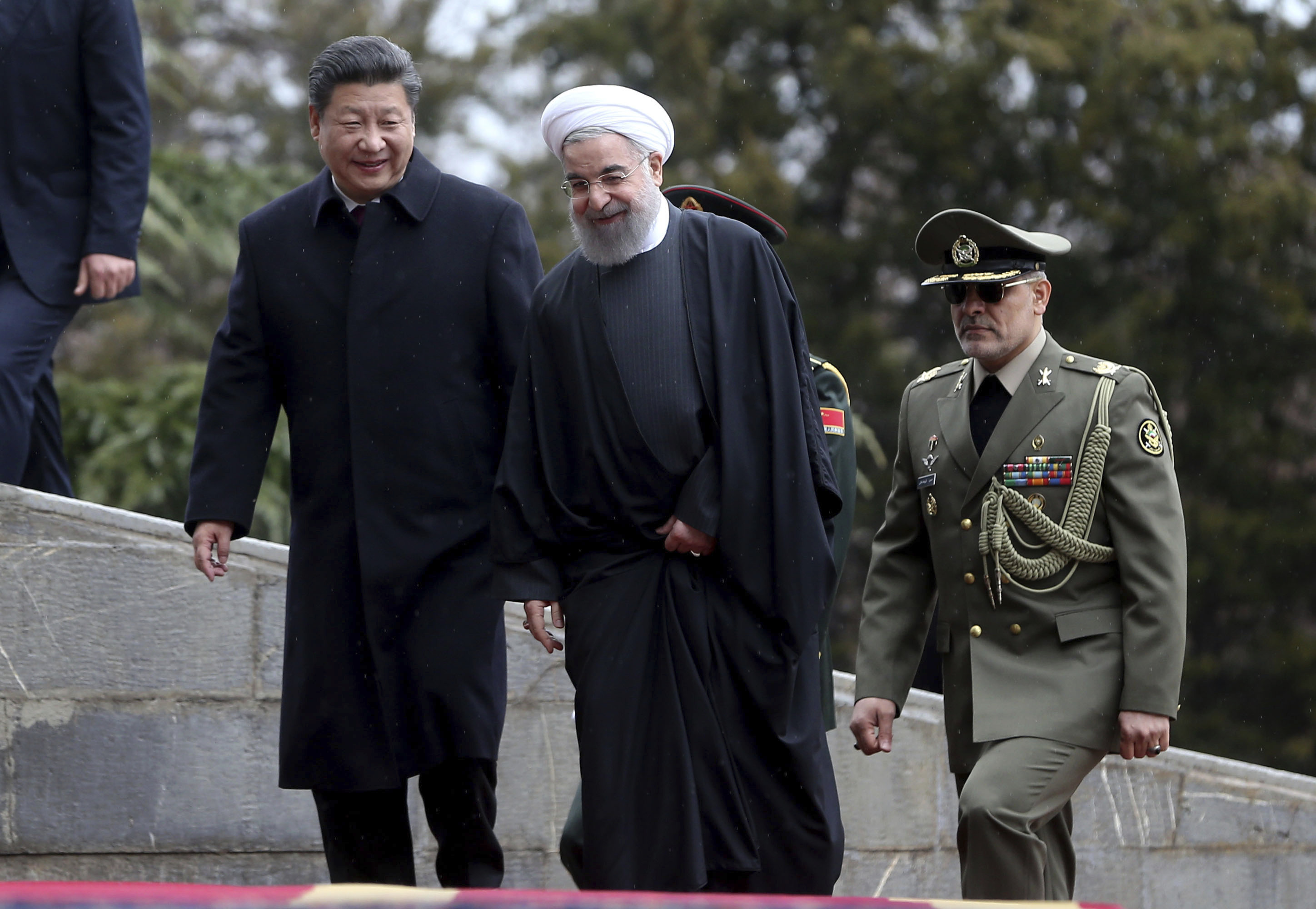Just as he did shortly after his partner Vladimir Putin ordered the invasion of Ukraine, Xi Jinping has put forward China's candidacy as a mediator in another war, that between Israel and Iran. Leveraging the platform of a regional summit in Kazakhstan, the president of the Asian superpower stated this week that his country was willing to "work with all parties to play a constructive role in restoring peace." A phrase that Xi and his subordinates have used on more than one occasion in reference to the conflict in Ukraine. Even in the context of the brutal bombings by Israeli troops in Gaza or the attacks by Houthi rebels in Yemen in the Red Sea. Ultimately, China's diplomacy in all these fronts has always resulted in the same outcome: an inability to be more than a distant observer.
After Israel launched its military operation against Iranian nuclear and military facilities on June 12, Beijing condemned what they described as a violation of Iran's sovereignty, security, and territorial integrity, with whom they maintain close economic ties. For an always energy-hungry China, Iranian gas and oil are essential for its energy security.
The world's second power has been sustaining the economy of the Islamic Republic for years, helping it navigate Western sanctions by purchasing 90% of its oil exports (using the famous fleet of ghost tankers that use fake locations and change barrel labels). This provides a lifeline to Tehran, in addition to Chinese companies frequently selling security and surveillance equipment to the regime. But China also maintains a very close commercial relationship with Israel.
Chinese Foreign Minister Wang Yi, in separate calls to his Israeli and Iranian counterparts, made an initial gesture of mediation last weekend. But Beijing's rhetoric against Israel is escalating as the United States looks into the conflict, awaiting Trump's final decision on whether to join the Israeli bombings on Iran.
The Asian giant always follows the same script: when the first attack is launched by a Washington ally, it is considered a blatant violation of international law. But if the war is initiated by a Chinese ally, such as Russia, they look the other way or even go as far as buying into Putin's propaganda about his security concerns regarding NATO expansion.
Xi Jinping, after reiterating his willingness to help de-escalate tensions between Israel and Iran, stated that his country was "deeply concerned" because the Israeli attack was escalating tensions in the Middle East. A message that came after Chinese authorities announced they had started evacuating their nationals from both countries. Buses have been chartered to Turkmenistan, over 1,100 kilometers away, from Tehran.
Videos of desperate Chinese citizens hastily leaving Tehran and rushing on foot to the road to cross into Turkmenistan, Armenia, or Azerbaijan have gone viral on Chinese social media. The exact number of Chinese workers residing in Tehran is not officially known, but it is believed to be tens of thousands, mostly engineers who moved there with Chinese companies that have invested nearly $5 billion in the country since 2007, mainly in the oil sector.
In addition to energy-related businesses and infrastructure investments, Iran has reportedly demanded large quantities of materials - especially ammonium perchlorate - from Beijing to develop its ballistic missiles. This is what the US claims, accusing Beijing of supplying dual-use items and technology that contribute to Iran's capabilities in drones and missiles. China, which has not directly sold weapons to Tehran since 2005, denies this.
As the conflict between Israel and Iran escalates, and Trump keeps the media guessing about whether his country will intervene or not, Chinese state media are trying to highlight Beijing's peacemaking role in the Middle East, recalling the diplomatic success scored by Xi Jinping's government when it managed to mediate the reconciliation between Saudi Arabia and Iran in 2022. However, most international analysts agree that, although the Asian country has deepened its relations, especially with Arab countries, its influence remains very limited compared to that of the US.
Many Chinese officials, despite acknowledging that they would like to play a more prominent role in resolving international conflicts, maintain that their foreign policy will continue the traditional strategy of "not interfering in the internal affairs of other countries". This approach has brought China many commercial successes and few enemies, but it has not been able to take advantage (in terms of mediation) of the neutrality they boast about.
The other Asian giant, India, watches with concern the war between Israel and Iran due to the risk it poses to its energy security: the escalation of conflict threatens the transit of goods through the Strait of Hormuz, the route through which almost 20% of the world's oil flows, and is driving up fuel prices. This scenario has the world's most populous country on edge, heavily dependent on crude imports, mostly from Gulf countries, including the Iranian ghost fleet that circumvents sanctions.
In Delhi, they are accustomed to juggling international conflicts and have not yet openly commented on the recent exchanges of attacks. India shares historical ties with Iran and considers it an essential bridge to Central Asia. However, Prime Minister Narendra Modi has been getting closer to Israel in recent years, its main defense supplier, providing weaponry, drones, and radar systems.
